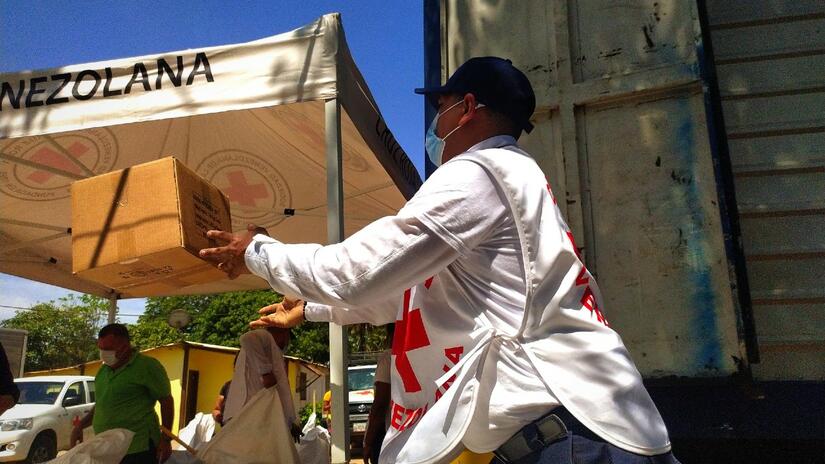Today, the IFRC is launching important and exciting new changes to our flagship Disaster Response Emergency Fund (DREF).
The DREF is our central pot of money through which we can release funds rapidly to Red Cross and Red Crescent Societies for early action and immediate disaster response. It's the quickest, most efficient and most transparent way of getting funding directly to local humanitarian actors, and has supported more than 200 million people in crisis since its launch back in 1985.
As of today:
- The DREF is now one fund made up of two 'pillars': an Anticipatory Pillar, previously known as 'Forecast-based Action by the DREF' and a Response Pillar. This new structure gives National Societies more opportunity to act before a hazard and better ability to respond quickly when a disaster strikes.
- We have introduced a new DREF funding modality to assess and address slow-onset disasters, such as drought and food insecurity.
- We have increased the funding ceilings available for National Societies so they can scale up and access the appropriate amount of funding required, at the right time, to meet the needs of at-risk and affected communities.
- We have made it easier for National Societies to request funding from the DREF by setting up an online application process on our emergency operations platform, IFRC GO. This digital transformation makes the request process even quicker, more efficient and more transparent.
Speaking about the changes to the DREF, IFRC Secretary General, Jagan Chapagain, said:
“Humanitarian needs are growing exponentially. So too is the pressure on our IFRC network to anticipate and respond to bigger and more complex crises. Our DREF is evolving to meet these needs”.
For more information about these improvements to the DREF, please contact Florent Delpinto, Manager of the IFRC Emergency Operations Centre: [email protected]

